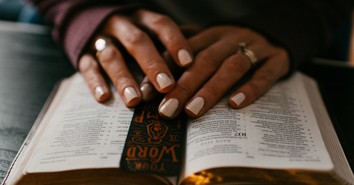7 Founding Fathers Whose Faith Influenced the Nation

The U.S. Founding Fathers were a diverse group. While their beliefs differed significantly, faith played a role in shaping their vision and decisions as they brought the new nation to life together. Sometimes they succeeded in living their faith well. But sometimes the Founding Fathers struggled with sin. Despite their failures, they kept trying to grow spiritually.
Here’s a look at what faith the Founding Fathers had, focusing on 7 of the most influential Founding Fathers, whose beliefs influenced the creation of the United States of America.
1. George Washington – a faith in God’s providence.
George Washington, the first president of the United States, often spoke of “providence,” which was a term he used to describe God’s guidance for making decisions. Psalm 33:12 declares: “Blessed is the nation whose God is the Lord, the people he chose for his inheritance.” Washington seemed to believe strongly that God had a special plan for the new nation. He was widely known for his strong trust in God. During the harsh winter at Valley Forge, Washington was seen praying alone in the snow, asking God to help his troops. One report from a man named Isaac Potts, who saw Washington praying on his knees there, said: “I heard him pray for his country, for Congress, for the army, and his voice rang strong and sincere.”
But Washington sometimes struggled with sin, despite his strong faith. He owned slaves, had anger issues, and had to work hard to control his temper, and sometimes drank excessive amounts of alcohol. Washington was a member and vestry leader in two different Episcopal churches that were close to his Virginia plantation, Mount Vernon. He helped manage church operations, such as financial contributions, helping people in need, and caring for the church properties.
Washington also participated in Freemasonry, serving as the Worshipful Master of a Masonic lodge in Alexandria. The Masonic order at that time emphasized a belief in God, morality, and public service. Many lodge meetings began with prayer, and Washington saw no contradiction between his Christian beliefs and his Masonic role. One important part of Washington’s leadership was his emphasis on religious tolerance. He once wrote in a letter to Benedict Arnold: “While we are contending for our own liberty, we should be very cautious not to violate the conscience of others.”
Photo Credit: ©Getty Images/Vernon Lewis Gallery/Stocktrek Images
2. John Adams – a devout faith that emphasized Christian morality.
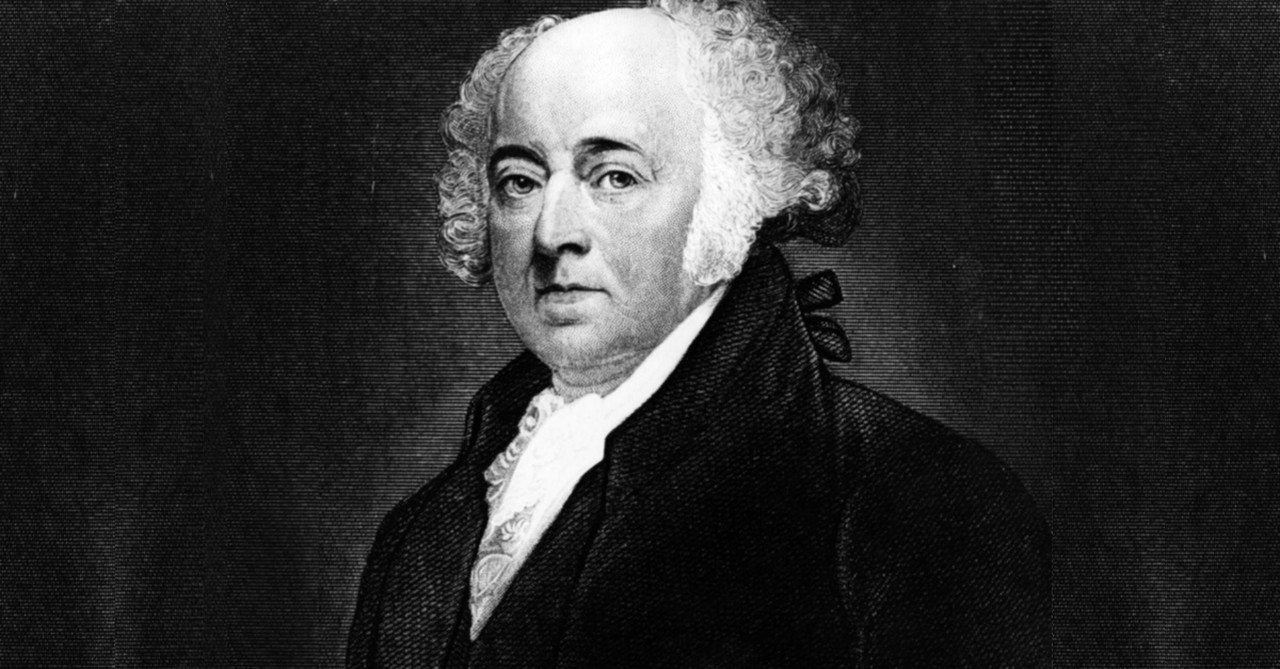
2. John Adams – a devout faith that emphasized Christian morality.
SLIDE 1 OF 6
John Adams, the second president, was a devout Christian and a strong moralist. Proverbs 14:34 says: “Righteousness exalts a nation, but sin condemns any people.” Adams believed strongly that moral virtues like integrity were necessary not just personally, but also to serve well in public office. Adams followed the wisdom of Jesus’ teachings and believed that following Jesus was important for all people in a society based on liberty and democracy. He wrote in a letter to his wife Abigail: “The general principles on which the fathers achieved independence were... the general principles of Christianity.”
To Adams, freedom and faith naturally went together. He wrote in a letter to the Massachusetts Militia: “Our Constitution was made only for a moral and religious people. It is wholly inadequate to the government of any other.” Adams’s support for religious liberty led to his supporting disestablishment movements in Massachusetts. He argued for the separation of church and state not to eliminate faith from public life, but to protect it from political corruption.
Adams viewed civic virtue as sacred. His personal devotion to God included daily prayer and Bible meditation, and he saw his role in public office as a calling from God. The letters Adam wrote show the words of a man who was committed to living out Micah 6:8: “What does the Lord require of you? To act justly and to love mercy and to walk humbly with your God.”
Photo Credit: ©Getty Images/Hulton Archive/Stringer
3. Thomas Jefferson – a questioning faith.
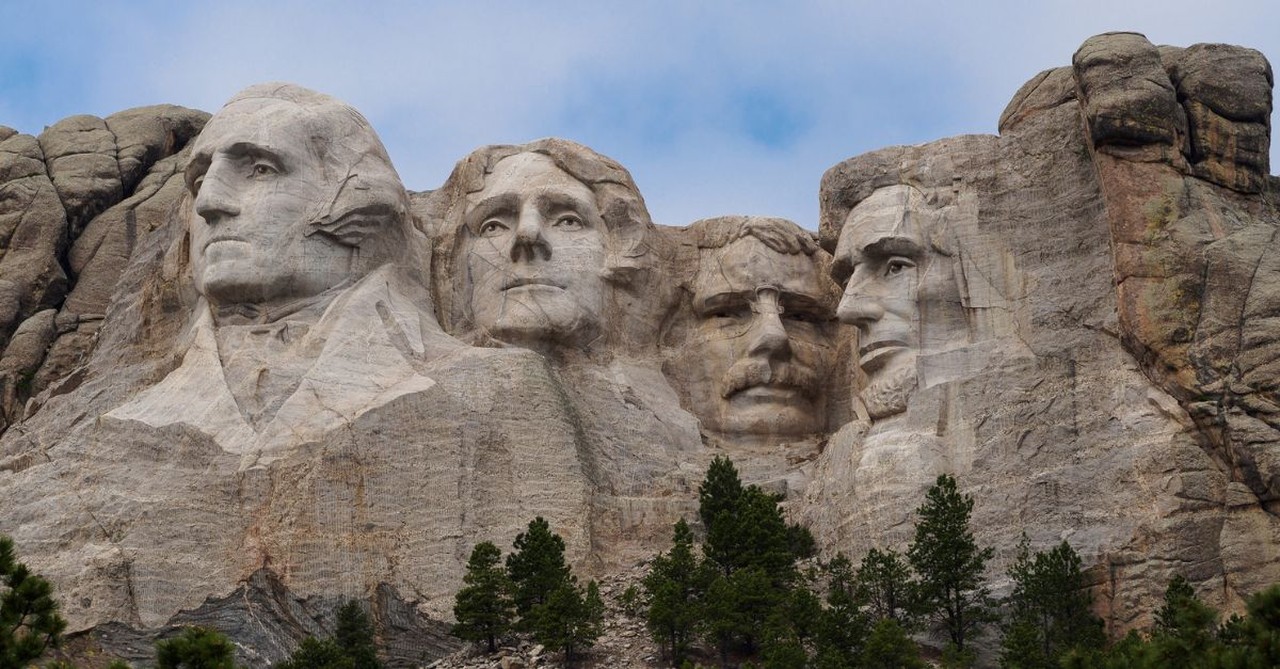
3. Thomas Jefferson – a questioning faith.
SLIDE 2 OF 6
Thomas Jefferson, the third president, often questioned many traditional beliefs of Christianity and didn’t accept the ones he thought were unreasonable. Romans 14:5 says: “Each of them should be fully convinced in their own mind.” Jefferson greatly admired Jesus’ moral teachings. He read the Bible frequently. However, Jefferson didn’t accept that Jesus was more than just a great teacher. He created a “Jefferson Bible” that emphasized Jesus only as a teacher of ethics and removed stories about God’s many miracles.
Jefferson believed Jesus taught the highest moral law known to humanity. In a letter to William Canby in 1813, Jefferson wrote: “Of all the systems of morality ancient or modern, which have come under my observation, none appears to me so pure as that of Jesus.” Although Jefferson admired Jesus’ moral teachings, he failed to follow them in some serious ways.
Jefferson owned slaves and had an immoral romantic relationship for many years with one of his slaves, Sally Hemmings. They had numerous children together. Jefferson tried to keep the relationship a secret, but rumors of it circulated widely during his lifetime. Jefferson supported the Virginia Statute for Religious Freedom, which laid the groundwork for the First Amendment. Jefferson’s vision for America included a pluralistic society where moral values prevailed, regardless of denomination. In Matthew 7:16, Jesus says of people who have genuine faith: “By their fruit you will recognize them.” Jefferson judged people’s faith by the moral character it produced.
Photo Credit: ©Getty Images/Darwin Fan
4. James Madison – an intellectual faith that valued learning and religious freedom.
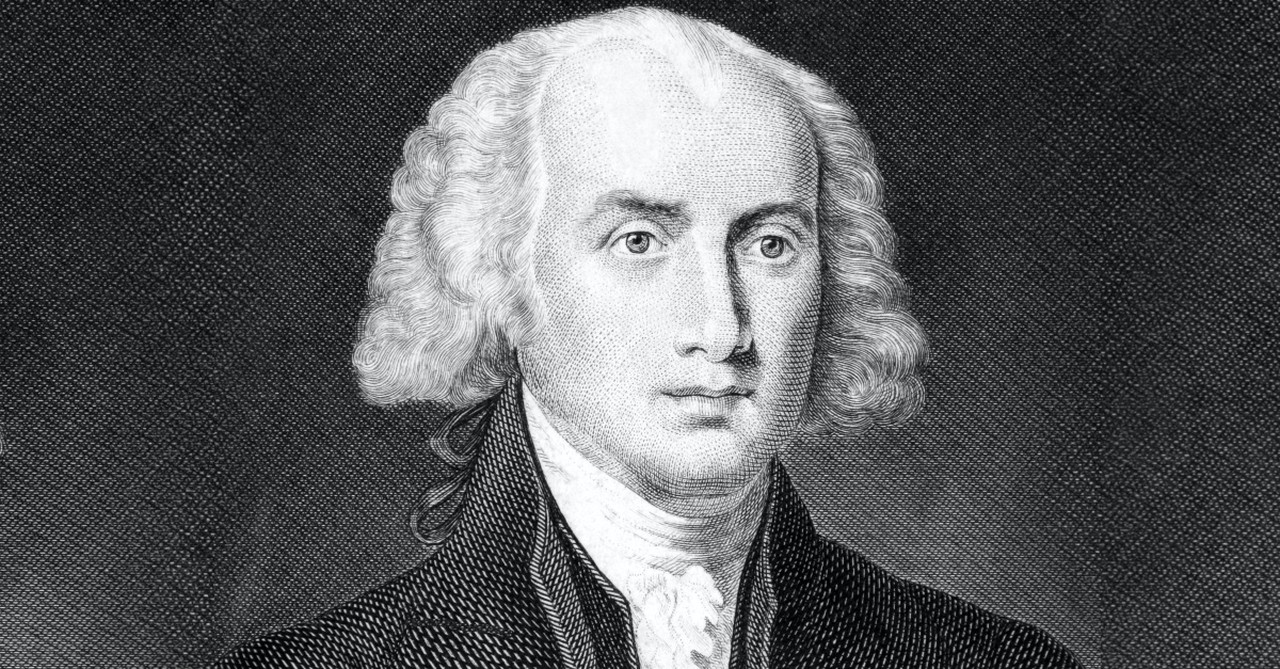
4. James Madison – an intellectual faith that valued learning and religious freedom.
SLIDE 3 OF 6
James Madison, the fourth president and the “Father of the Constitution,” believed what the Bible says in 2 Corinthians 3:17: “Now the Lord is the Spirit, and where the Spirit of the Lord is, there is freedom.” He was shaped by a strong Christian education. He studied theology and classical languages under Presbyterian leaders and attended Princeton University, which emphasized both spiritual and intellectual training.
Madison also enjoyed lifelong learning. His most enduring legacy may be his defense of religious freedom. He wrote in his amendments to the Virginia Declaration of Rights: “That Religion or the duty we owe to our Creator, and the manner of discharging it, being under the direction of reason and conviction only, not of violence or compulsion, all men are equally entitled to the full and free exercise of it according to the dictates of Conscience.” Madison’s vision helped form the First Amendment, which protects the free practice of religion for all Americans and prevents the government from establishing any one type of church over others.
Madison believed the new U.S. government should allow people’s beliefs to grow freely, as God guided them. He saw this freedom as essential for both spiritual and civic life. In a letter to Edward Livingston, Madison wrote: “… religion and government will both exist in greater purity, the less they are mixed together.” Madison also maintained friendships with ministers and theologians throughout his life. His Christian background instilled in him the conviction that moral citizens were essential for a lasting republic.
Photo Credit: ©Getty Images/GeorgiosArt
5. James Monroe – a courageous faith that emphasized integrity and service.
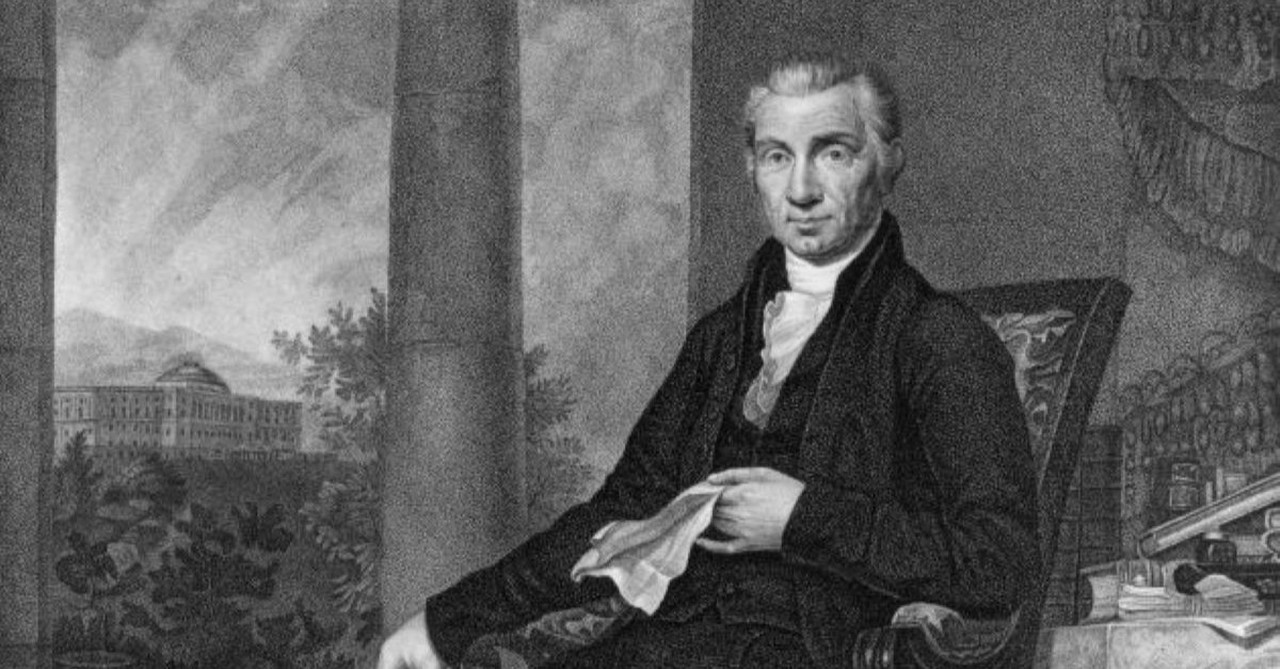
5. James Monroe – a courageous faith that emphasized integrity and service.
SLIDE 4 OF 6
James Monroe, a Revolutionary War soldier who served in many important roles (such as a diplomat and governor) before becoming the fifth president, tried to live out his faith by doing what was right. Psalm 15:1-2 asks: “Lord, who may dwell in your sacred tent? Who may live on your holy mountain? The one whose walk is blameless, who does what is righteous.” Monroe was a lifelong Episcopalian who was known for his trustworthy character. Thomas Jefferson wrote to James Madison about Monroe’s integrity, saying: “Monroe is so honest that if you turned his soul inside out there would not be a spot on it.”
Despite his excellent integrity, Monroe still struggled with sin. He was a slave owner who spoke out against slavery later in life but failed to free his slaves (except one, whose freedom he planned in his will). Monroe also neglected to stop the spread of U.S. slavery as the country grew under his leadership. Overall, though, Monroe tried to do his best to rely on God. In his second inaugural address as president, Monroe expressed confidence that God would bless the American people: “With a firm reliance on the protection of Almighty God, I invoke the best blessings upon this great and free people.”
Monroe supported religious liberty and helped make sure that public institutions respected the rights of conscience. He commented about the Virginia Statute for Religious Freedom: “Of the liberty of conscience in matters of religion, we should never lose sight.” He also worked hard to try to create and sustain a U.S. government based on good moral principles, and famously said: “The best form of government is that which is most likely to prevent the greatest sum of evil.”
Photo Credit: ©GettyImages/Library of Congress
6. Patrick Henry – a strong faith in Jesus and liberty.
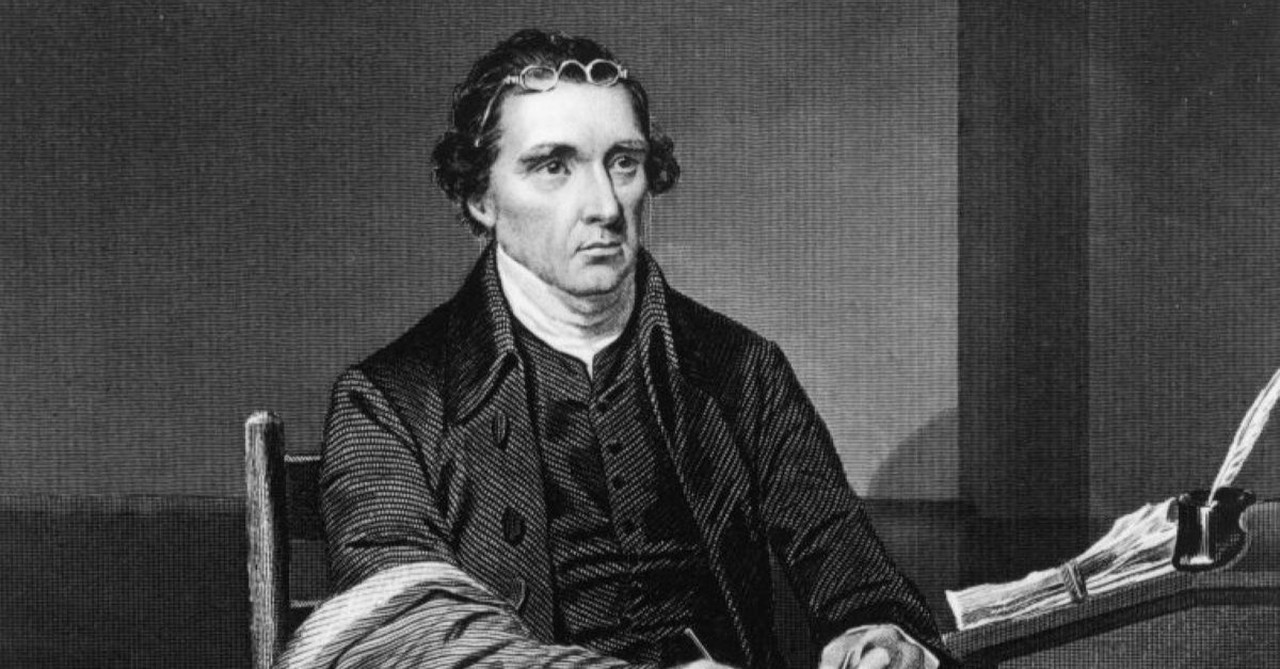
6. Patrick Henry – a strong faith in Jesus and liberty.
SLIDE 5 OF 6
Patrick Henry, best known for declaring “Give me liberty or give me death!”, often spoke about his faith in Jesus. Henry saw the spiritual freedom Jesus gave people as important for building a free nation. Psalm 119:105 says, “Your word is a lamp for my feet, a light on my path,” and Henry valued biblical discernment. He once said to a neighbor about a Bible: “This book is worth all the books that ever were printed…”
Henry saw liberty as a gift from God, not just a political ideal. He warned that a nation without virtue would eventually lose its freedom. He was a devout Anglican church member and supported Christian education and pastors. Henry was known as a passionate champion of liberty. Yet, like many of the other Founding Fathers, Henry owned enslaved people throughout his life. What’s remarkable is that he was aware of the contradiction. In a letter to Quaker abolitionist Robert Pleasants, he wrote: “Would anyone believe that I am master of slaves of my own purchase? I am drawn along by the general inconvenience of living without them. I will not – I cannot justify it.”
That’s a rare admission for the time. He recognized slavery as morally wrong and incompatible with the Christian and republican ideals he expressed. But he also confessed that he lacked the resolve to break from the system himself. Henry was a thoughtful Christian who ultimately relied on God’s grace. In his will, he wrote: “This is all the inheritance I can give my dear family. The religion of Christ can give them one which will make them rich indeed.” His Christian worldview guided both his public policy and his private life.
Photo Credit: ©GettyImages/Hulton Archive / Stringer
7. Benjamin Franklin – a practical faith of service.
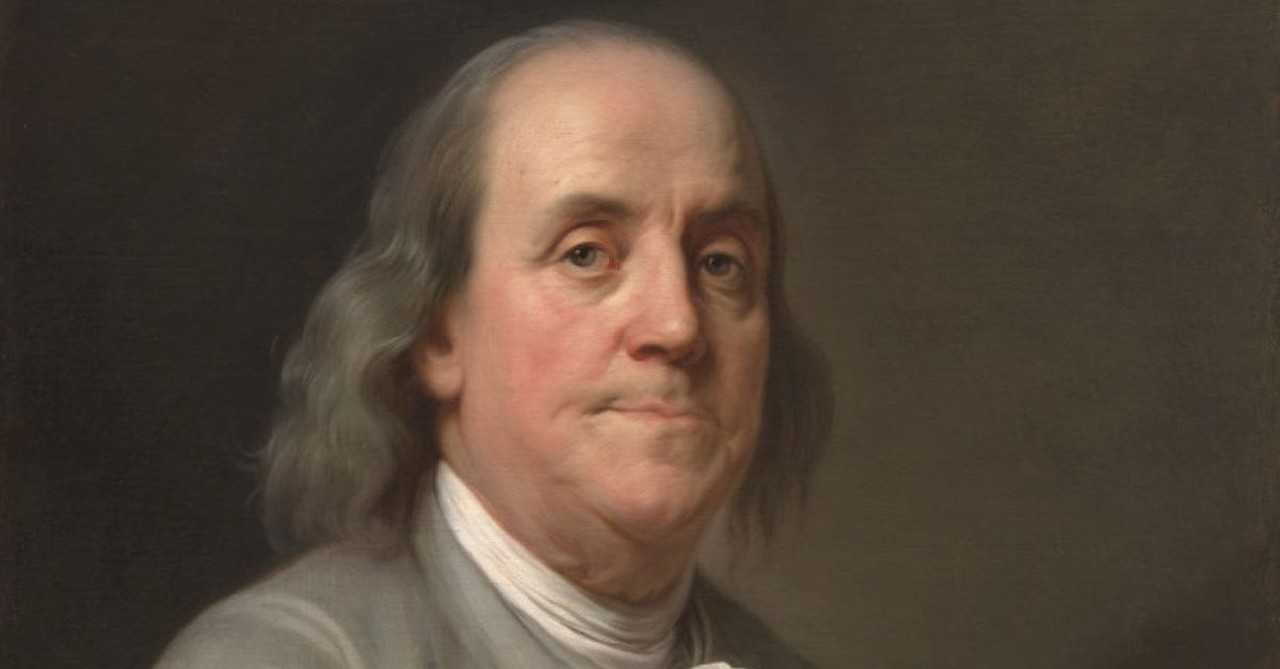
7. Benjamin Franklin – a practical faith of service.
SLIDE 6 OF 6
Benjamin Franklin, who was raised in a religious Puritan household and later identified as a Deist, was known for his emphasis on virtue, practical living, and civic duty. Franklin often lived out the truth that James 2:17 describes: “Faith by itself, if it is not accompanied by action, is dead.” In a speech during the Constitutional Convention of 1787, Franklin urged the delegates to pray. He said: “I have lived, Sir, a long time, and the longer I live, the more convincing proofs I see of this truth – that God governs in the affairs of men.”
Franklin created a list of 13 virtues that he tried to cultivate in himself. Those virtues were: temperance, silence, order, resolution, frugality, industry, sincerity, justice, moderation, cleanliness, tranquility, chastity, and humility. Some of Franklin’s virtues relate to the fruit of the Spirit that the Bible lists in Galatians 5:22-23: “love, joy, peace, patience, kindness, goodness, faithfulness, gentleness, and self-control.”
Yet, despite his desire to live a holy life, Franklin sometimes failed in significant ways, such as by engaging in romantic affairs with various women. He tended to rely on his own efforts to be virtuous, perhaps more often than asking the Holy Spirit to help him. He admired Jesus as a moral teacher and donated to multiple churches, including building a church in Philadelphia for “any preacher of any denomination.” He wrote in a letter to Ezra Stiles: “As to Jesus of Nazareth, I think the system of morals and his religion... the best the world ever saw.” Franklin was a Freemason, serving as Grand Master of the Masons in Pennsylvania. For Franklin, faith was measured by what it did for others.
In conclusion, the faith of the Founding Fathers was diverse, but each one did have some kind of faith in God. Their legacies show that faith played a key role in shaping the United States. As Psalm 33:12 reminds us: “Blessed is the nation whose God is the Lord.” In their own ways, the Founding Fathers worked to build a nation like that.
Photo Credit: ©GettyImages/Heritage Images

Originally published July 01, 2025.







